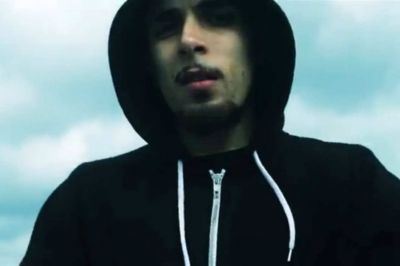
 Rap and Radicalisation: The UK Rapper Turned Islamic State Executioner...
Rap and Radicalisation: The UK Rapper Turned Islamic State Executioner...
Other | Thursday 2nd October 2014 | Osh
The infamous 'Jihadi John', the British born Islamic State militant filmed carrying out the beheadings of three Western hostages in Iraq, may have been identified: as a 23 year-old 'failed' rapper from London.
Abdel-Majed Abdel Bary has been named by the FBI as the leading suspect in the quest to identify the masked, British-accented executioner responsible for the brutal murders of two journalists and an aid worker.
As a young rapper Bary went under the names L Jinny, Lyricist Jinn and Jinn Matic. Now the one-time freestyler is the focal point of an international manhunt that will unfortunately make him more famous than his musical talents might've done.
The 23 year-old from Maida Vale in West London is thought to have traveled to Syria in 2013 to take part in the Civil War, from where he became involved with Islamic State in Iraq. 'Jihadi John' is one of the British jihadists nicknamed by former IS hostages as 'the Beatles' (because of their accents), the others nicknamed 'George' and 'Ringo'.
Bary's father, an Egyptian refugee named Adel Abdul Bary, is in New York awaiting trial over his alleged role in 1998 terrorist acts in Kenya and Tanzania. He was extradited from the UK in 2011 and faces a life sentence if convicted. 'L Jinny' was six years old when his father was arrested in London.
The feelings of anger and parental loss that the infant Abdel Bary experienced would years later find their way into his lyrics as an up-and-coming rapper. In one of his songs, 'The Beginning', he raps "Give me the pride and the honour like my father. I swear the day they came and took my dad, I could've killed a cop or two and I wouldn't look back." And in a later verse, "Like boom bang fine, I'd be wishing you were dead. Violate my brothers and I'm filling you with lead."
His rap music aspirations behind him, Bary first came to international attention earlier this year when he posted a photo of himself holding up a severed head to Twitter. "Chillin' with my homie... or what's left of him," he tweeted on his now-deleted account.
Though not a household name in UK rap music, Abdel Bary was only in the early stages of his musical 'career' and had some limited success, his singles played on BBC Radio 1 Extra in 2012. The themes of his songs ranged from drug use and violence to highly personal issues such as the absence of his father and the danger of his family being deported to Egypt. Friends have claimed Bary's radicalisation began when he came into contact with extremists linked to the notorious London-based 'hate preacher' Anjem Choudary.
However, we should point out that some more recent reports suggest Britain's M15 aren't willing to name 'L Jinny' definitively as Jihadi John. M15 is claiming to know who the masked executioner is, but are unwilling to announce it while Western hostages are still in the hands of Islamic State. Bary is one of three British men being considered as the suspect.

What does all this mean? Journalists and commentators have been heavily focusing on Bary's rap music, probably because it gives the already extraordinary story yet another ingredient that can be sensationalised. But any implication that rap or hip-hop are a cause of his radicalisation is knee-jerk nonsense. Rap, from its cultural roots, has always been socially and politically conscious and often confrontational. The most influential trailblazers in the genre saw rap as a form of social and political protest. But the disaffection, the frustration with society, comes first.
The fact that 'Jihadist rap' is a thing now isn't surprising, as rap and hip-hop are the most popular music genres among young men and rap is considered by many the ultimate modern form of cultural expression for disaffected youth.
In some respects Bary's story isn't so different from the classic kid in America who gets hold of his Dad's firearms, goes into his school and shoots up the place (usually turning the gun on himself). In essence, the story is that of an angry youth growing up with an absent, imprisoned father, and feeling alienated from the society he's grown up in.
His mother, according to several newspapers, can barely speak English and lives a secluded life, cutting herself off from the outside world from fear and distrust of British society, home schooling her children and raising them with that same mentality. Living in a highly sensitive climate for a young man (especially of Islamic background) and bearing a grudge over the imprisonment of his father, Abdel Bary would have been someone naturally vulnerable to radicalisation.
Of course none of that even begins to justify anything he is accused of having done. But it does reinforce the point that while a military war on the terrorists in Iraq and Syria is being carried out, a broader cultural war needs to be fought on home soil to prevent the hearts and minds of disaffected young men from being won over by the extremists.
It isn't just a case of 'de-radicalising' someone, but preventing the next lot (even the next generation) of dissatisfied British citizens from following the same call to foreign lands. That's an idealogical battle; one that needs to be fought over a number of years and at different levels of society. There's no quick fix to that degree of alienation and indoctrination, especially when it's been building for so long.
A final word on this whole sorry story: he actually got skills. The kid had some talent. Don't think we will be hearing much more music from this one though,
